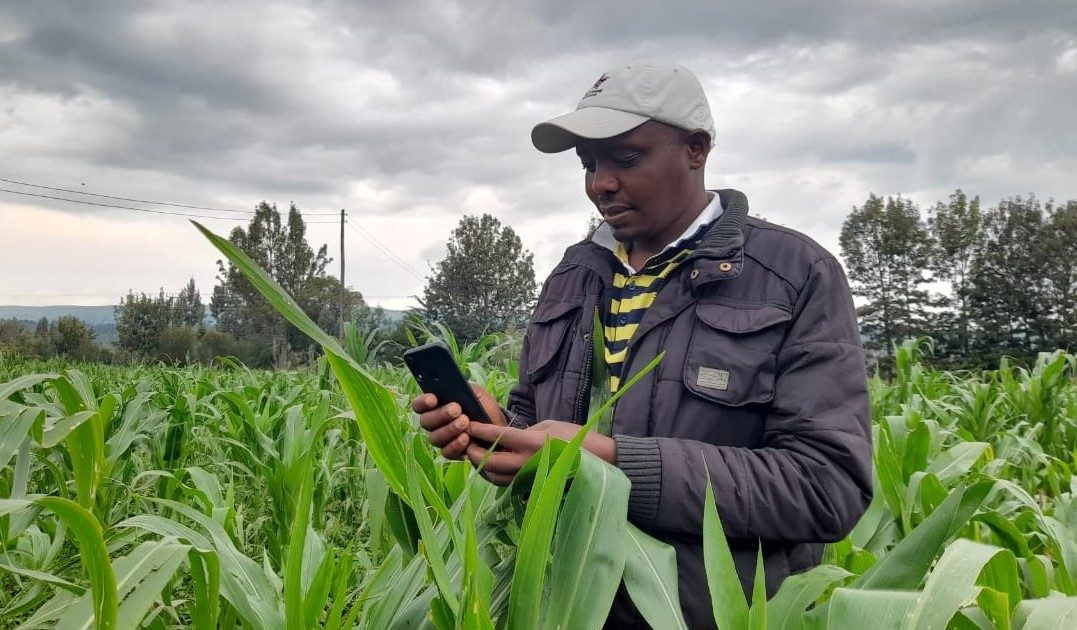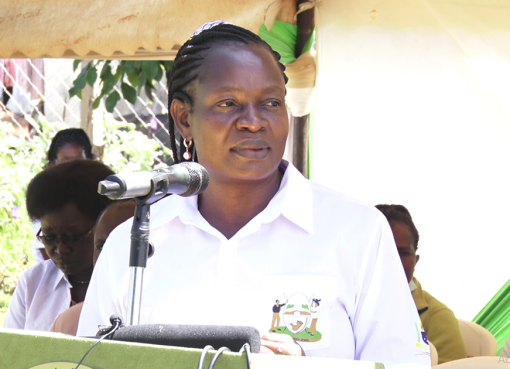Technologies and Innovative farming practices have the potential to enhance Agriculture sectors productivity and effectiveness.
The government is recognizing the potential in the use of data and ICT-technologies in agriculture development by promotion of digital solutions especially for young upcoming farmers
With the average age of the farmers being 60 years old and young people pursuing non-agricultural careers as opposed to following in the footsteps of their parents and grandparents, young people interested in the agriculture sector are now asking the policy makers to shift from just the normal farming and inculcate technology in order for them to venture into the sector
Although some of them are interested in the sector and believe they could transform the sector, they however say that this can only happen if the government preaches agriculture as a profitable and exciting career path for the young by inculcating training and lessons at a young age at the education and at technical training institutes.
According to Youth in Agroecology and Business Learning Track Africa (YALTA) programme launched in the country to showcase youth-led agroecological best practices developed by young entrepreneurs, agriculture is a viable and profitable business opportunity.
Managed by Netherlands Food Partnership, the YALTA initiative equips young people in Kenya, Uganda, Rwanda and Ethiopia with fundamental job skills to begin a business and career within the field of agro- ecology.
Speaking to KNA during a Youth Coalition meeting that brought together youth from various counties to share and compare notes on the agriculture venture, Faith Njihia project and finance officer from Africa Agribusiness Academy that has been running the YALTA initiative said their goal has been to ensure sustainable agriculture in order to enhance employment changes among youth.
“We are working in eight countries and here in Kenya we have been working with County governments and also SMEs that are on the ground to identify the youth who we train on financial management, how to brand and market their products and also in promotion through ICT in their agriculture ventures.
The workshop, Njihia said is all about coalition meet ups where the youth who have been trained and are venturing on agriculture share their experiences, lessons learnt and network with one another.
She explained that 95 percent of the youths they have been working with are under the age of 25 years and have just come out of university and are eager to start something that will keep them afloat because of a lack of jobs.
“Most of these young people have come to appreciate agriculture more than white collar jobs because of the technology being used nowadays. However, lack of access to funds and mentorship programmes is still a big challenge,” she said.
She encouraged parents to help grow, support and nurture the talents of the youth because not all of them are cut out for office jobs. “Going to campus is to add more knowledge which can be applied in other fields like agriculture.”

Njihia called upon the youth to follow their passion, be self-driven as long as it brings them income.
One beneficiary from the YALTA programmes Judith Chepchumba who produces beans and potato seeds in Nakuru County said that she has always been at loggerheads with her parents who normally feel that she should get a white collar job instead of venturing into agriculture.
“My parents keep on telling me that the business I am doing should be a back-up plan and that I should seek for alternate career that aligns with what I studied at the university. They do not foresee a future for me in this venture and all along my parents have been farmers”, she said.
23-year-old Harriet Amondi Ochar, founder and CEO of Bester enterprises company that deals with peanut farming and value addition in Kisumu and its environs says when she started with just an idea, she did not envision her idea could produce an enterprise that has now over 50 youth member groups.
“The idea of peanut came just when I was in campus and most people did not like the commonly used margarine for their bread and were yearning for something else,” the recent graduand from Egerton University who was pursuing food science and technology course said.
She explained that although most of them are using their parents’ lands for production of groundnuts, they have been doing it in around 10 acres and the produce they get supplied to Egerton University and the remaining product process the peanut butter spread.
Amondi says that she started her enterprise back in 2020 after being trained on agroecology through the YALTA programme.
“I found out about this programme on a social media platform. I got the opportunity, did an interview and I qualified after submitting my idea and products I was trained and even got a donor who funded me Sh 500,000 to start up and scale up my business,” she explained.
Amondi said that currently the group is supplying EUGN1 that is (red small) groundnuts and also EUGN2 (red big) seeds variety that do well in the clay loam soil in the area and working with farmers in different regions of Siaya, Homabay and Kisumu in training and engaging them in production of the ground nuts in order to meet the demand.
She reiterates that young people of today are on social media and new technologies, they want to be independent and not depend on their family for basic needs and given the opportunity they can be able the fill the big gap that the parents have left in the farming business.
As a group, she said that having learnt about organic farming, the peanut butter they produce is natural with no added additives thus they have been able to get customers and sustain themselves
“We sell our end product from as low as Kshs 50 to a High of Ksh 800 and our markets we do through social media, word of mouth or even door to door. We also shelve 20 percent of our profits and use it to loan and grant the same member youths who want to venture into some side jobs in the agriculture sector”, she said
She confirmed that they have representatives in 10 Counties currently and who are able to market and supply their products to their customers.
Amondi says that in the next 10 years, she would want to see her enterprise being a leading exporter of groundnuts in the country, having direct and also indirect employees who are young , energetic and out to fend for themselves instead of being idle doing nothing or relying on white collar jobs .
Manei Naanyu, the head of programs at Participatory Ecological Land Use Management (PELUM) Kenya said they will be coordinating activities for the youth in an annual coalition programme under the YALTA programme and support them.
“The meeting today exposed the youth to policy initiatives for the agroecology as well as gave them a platform to share experiences, challenges and achievements under the sustainable agroecology initiatives”, she explained
Manei noted that through the discussions at the workshop, most youth just want the government to give them a seat at the table by including them from ground to policy making level so that they can also add their voices when it comes to matters of agriculture.
Most youths who attended the workshop were able to share their successes, encourage each other and discuss matters of agriculture, financing, volunteering and also on opportunities that they need to tap on.
Manei urged organizations that are working under the PELUM umbrella bodies to keep on supporting and working with the youth by involving them in their programmes.
Information and communication technologies (ICTs) are already bringing new vibrancy and potential to agricultural practices around the world with young people being ready and eager to master the technologies and apply to agriculture to not only increase productivity but also to demonstrate to other youth that agriculture can be a viable and profitable business opportunity.
By Wangari Ndirangu





